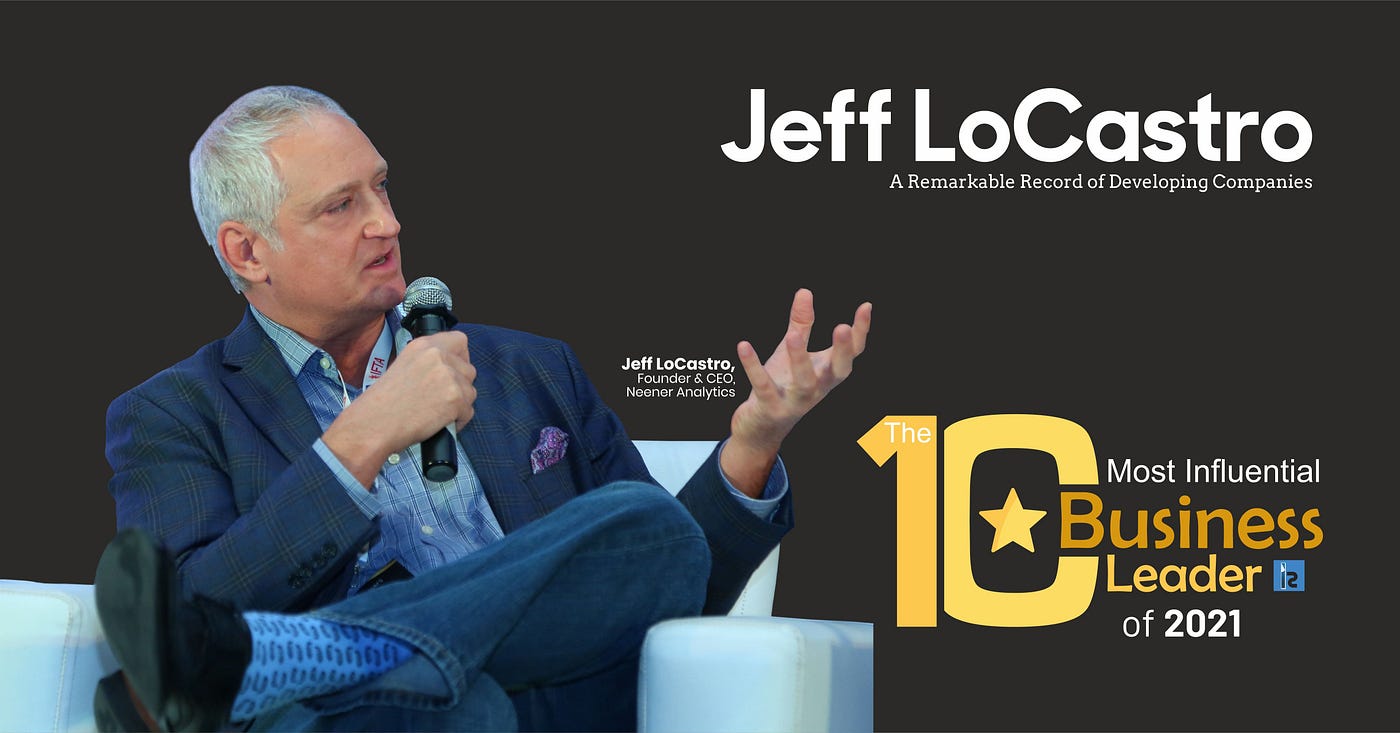Through this questionnaire, our aim is to accentuate your organisation, the services/products you offer, the problems you solve for your consumers, your contributions to the society, and your strengths in the national and international markets. We are looking for crisp and perspicacious answers between 900-1200 words for the same.
- Kindly enlighten us about the inception story of your business.
I lived in China for two years scaling one of my US businesses there. About 6-months before coming home, I made a list of the first things I had to do when I returned. As my California Driver’s License had expired while I was out of the country, that was the first thing on my list. And I wondered why that was? How had that made #1. I still knew how to drive. But it was #1 because it was no longer valid as an ID. That made no sense. I’m still me. So, I was only “valid” if the California Department of Motor Vehicles said I was? That’s insane. I thought, “how did my grandparents’ function without walking around with ID’s?” Further, “How was he able to get a loan,” or whatever, “without a wallet full of government ID’s or even a credit score?” He was able to do it because his banker, for example could say, “I know you!” The banker knew my grandfather’s story.
And where is that story being told? Social Media. Neener Analytics was born.
- What are the various products/services offered by your enterprise, and how are they unique or different from the existing products in the market?
We look at it this way: “What if you could sit each customer down with a psychologist and ask them, “are you really going to pay us back?” Because that’s the question, right? The question is not CAN they, the question is WILL they.
What we’ve developed is a regulatory compliant 1-click cognitive AI-based 100% consumer opt-in financial risk decisioning technology using Human-Data Science™. Using Cognitive AI, Neener Analytics has cracked the code on Small Data to recapture on average 22% of a lender’s rejections without increasing the lender’s current risk threshold. This is cognitive AI, not machine learning. Huge difference.
Better decisioning is not a “data” problem. It’s a “Human” problem. Lenders don’t want to know if the consumer’s “data” is going to pay them back . . .they want to know if the consumer themselves is going to. Which is why we have pioneered Human-Data and created the branch called Human Data Science™
We’ve got 2 product lines Click-based & Chat-based. 5 result products: Default Risk, Transactor-Revolver, Risk Alignment, Veracity, Resiliency. ARIA (our AI) produces binary outcomes, just like human beings make decisions about other human beings. All delivered in a Json. Our solution takes <15mins to implement, can be integrated with any core, and if used ONLY at Rejection Recapture no core integration is needed. We are in 11 countries, and average 87% opt-in rate (99.98% @ rejection). Consumers want this.
We are Small Data, not big data. We’ve cracked the code here and developed the most advanced AI & Deep Learning to crack the code on Small Data. Everyone to this point have been using Big Data: aggregations and pools of affinity to create correlations masquerading as an “individual” prediction. Our AI & Deep Learning creates and individual matrix on each consumer that manifests in binary Outcomes, not scores or behaviors.
Our system is making decisions about the applicant the exactly the way humans make decision about other human beings. Not based on what they talk about (big data), but rather how they talk about those things (small data). Exactly, like humans… except better, with higher accuracy and less bias.
- In a highly consumer-oriented market, how much importance do you pay to quality and authenticity?
We are always focused on that. This business didn’t start as a great way for banks to make more money. It started because 88% of global consumers are thin-file, no-file and credit challenged. 88% globally. These are the invisible consumers; invisible not because they are high risk, but rather because current risk assessment systems simply don’t work for them. This is a massive problem. I contend that this is the biggest problem in the world. You cannot build a middle class or improve the standard of living for a society or individual without access to financial products and services. And you cannot deliver that access if the risk of the engagement cannot be assessed.
- According to you, what are the most important qualities an entrepreneur should possess?
- Share the Vision: Great entrepreneurs have a way of getting great people excited about the future; the ability to inspire.
- Create a Mirror: Always make sure the team sees that you are willing to give as much as you demand from them.
- Chart the Path: Great entrepreneurs can see the path before them and can show their team that it’s real. Pretty important: A vision with no path is just a fantasy.
- Empower Execution: Great entrepreneurs allow great people to get things done. Sounds simple to say, but bad entrepreneurs are control freaks. Great entrepreneurs question, and course-correct
- Do you believe there is a winning formula for becoming a successful entrepreneur? What is yours?
Think differently – constantly. Attack the status quo – daily. Only then you will make room for new ideas and better ways to do things; only then you move beyond ‘nuance’ and into full fledge disruption.
One of the things that has made Silicon Valley so success is that failure is encouraged. That sounds odd to some, but you don’t advance without lots of mistakes. When a start-up goes out for venture funding, the 2 top questions the investor wants to know are 1) tell me all the good stuff that is happening, and 2) tell me about all the mistakes you have made. They WANT you to have made mistakes . . .with your own money, not theirs. If you tell them you haven’t made any mistakes . . . they will show you the door right away.
So, living in an where failure is embraced as a potential outcome moves things forward. That doesn’t mean we hope for it, it means that the fear of failure isn’t an obstacle because in any technological advancement, a lot of failures occur. And, when people aren’t afraid to fail, things can move very quickly.
If you are only focused on “winning”, you are not focused on the things it takes to win.
- Mention some awards and recognitions received by your company.
BEST OF SHOW: 2017 Finovate Silicon Valley
https://finovate.com/videos/finovatespring-2017-neener-analytics/embed/#?secret=1BtoNETn7L
BEST OF SHOW: 2019 Finovate Silicon Valley
https://finovate.com/videos/finovatespring-2019-neener-analytics/embed/#?secret=rovHLl5MVd
#1 IN WORLD FINANCIAL INCLUSION: 2019 Finovate Global Awards
https://finovate.com/drumroll-finovate-awards-winners-announced/embed/#?secret=XmMRE9tjNK
FINALIST: TOP 8 AI IN THE WORLD: 2019 Finovate Global Awards
#1 RISING STAR AWARD: 2019 India Fintech Awards
2021 Fintech Americas Conference: Silver Award, FINANCIAL INCLUSION (For our partnership with Invex Banco, Mexico)
- The market is extremely volatile, what is the current scenario of the industry you are involved in? Where do you think we are heading towards as an economy?
The global economy fluctuates indeed, but only certain sectors should be considered volatile. 2020 was an outlier. A slow-down that was man-made instead of market made. That’s never happened before. That decision made the entire economy appear volatile because of the overt uncertainty it injected. As a result, we had lenders just stop lending. It was crazy stuff. But around October, November 2020 they were all ready to get back to it because they collectively understood, as I said, this was not a market cycle but rather an overt decision. We are really starting to see that uncertainty lifting and everyone getting back to business as usual, as they should.
- Where do you see your enterprise in the next ten years?
We are really pioneering the idea that the consumer is their own data. And the consumer as their own source of data is the future of all consumer engagement. We are currently in 11 countries, and I see us owning specific market regions in the next 10 years. We’ve already built out 2 product lines, third one coming in Q4/2021 each delivering 5 decisioning products and are on track for a new line each of the next 5-years while continuing to expand our decisioning capabilities.
- What advice would you give to budding entrepreneurs?
I could write an entire book on this question.
Building and scaling a company from only an idea will be the most difficult thing you will ever do in your life. And it will also be the most professionally satisfying. It’s not a hobby, and its not a job. It’s a passion. You can’t play-act it. You have to live it. And you should be ready to sacrifice for it. I always say that if you are in a personal relationship at the time, a successful entrepreneur should always have a loving partner at home that also understands the sacrifice. If that person at home is a source of angst (because of the consuming nature of the endeavor) . . . the business OR the relationship will fail.






